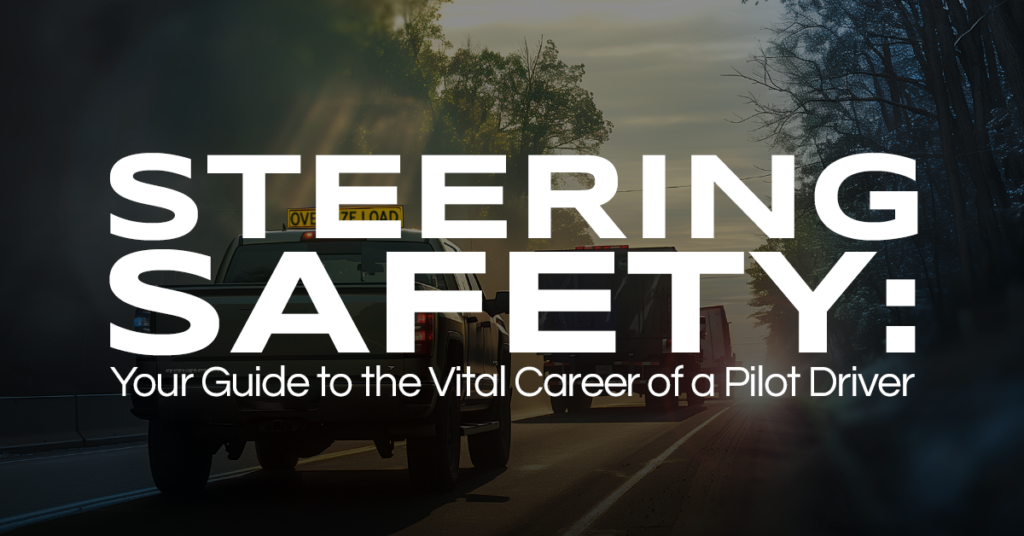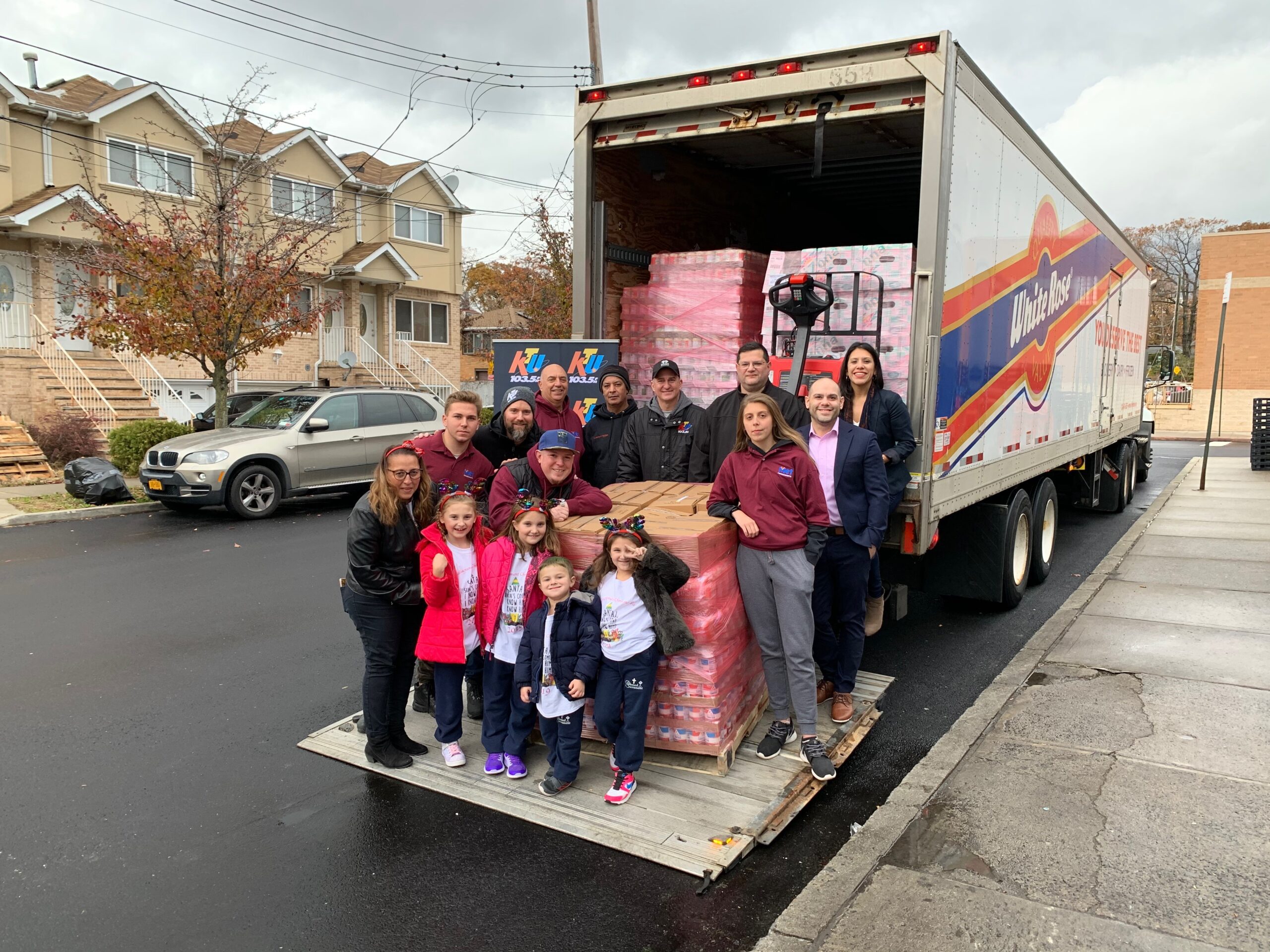
How to Become a Pilot Car Driver: A Comprehensive Guide
Embarking on a career as a pilot car driver offers a unique blend of responsibility and adventure. Imagine navigating the open road, ensuring the safe passage of oversized loads, and experiencing new places every day. At Optimum Staffing Solutions, we connect you with top opportunities that align with your skills and passion for adventure. Whether you’re just starting out or seeking to advance your career, we provide the support and resources you need to thrive. Join us as we delve into what it takes to become a pilot car driver and how our staffing services can help you navigate this dynamic and rewarding career path.
What Does a Pilot Car Driver Do?
A pilot car driver, also known as an escort vehicle driver, plays a crucial role in the transportation industry. They lead or follow oversized trucks, ensuring the safe and efficient transport of large loads. Responsibilities include:
Surveying Routes:
Assessing the best routes to avoid low bridges, tight corners, and other obstacles.
Communicating with Truck Driver:
Maintaining constant communication with the truck driver to coordinate movements and manage any unforeseen challenges.
Warning Other Drivers:
Using signs, lights, and flags to alert other drivers of the oversized load.
Safety Checks:
Conducting pre-trip inspections to ensure all equipment is functioning correctly.
Steps to Become a Pilot Car Driver
1. Obtain a High School Diploma or GED
Starting with a solid educational foundation is essential. Most employers require a high school diploma or GED. Courses in geography and driver’s education can be particularly beneficial.
2. Get a Valid Driver’s License
A clean driving record is crucial. You must hold a valid driver’s license issued by your state and meet any additional state specific requirements.
3. Complete a Certification Program
Many states require pilot car drivers to complete a certification program. These programs cover safety regulations, state laws, and practical driving techniques. Organizations such as the National Pilot Car Association (NPCA) offer recognized certifications. Here are some states with specific licensing requirements:
States Requiring Specific Licenses for Pilot Car Drivers
- California: Requires completion of a pilot car driver certification program and registration with the California Department of Transportation (Caltrans).
- Colorado: Mandates pilot car certification through an approved training program and passing a written test administered by the Colorado Department of Transportation (CDOT).
- Florida: Requires certification through the Florida Department of Transportation (FDOT) and compliance with state-specific safety and equipment regulations.
- Georgia: Requires certification and adherence to specific safety regulations set by the Georgia Department of Transportation (GDOT).
- Illinois: Certification is required through the Illinois Department of Transportation (IDOT), including adherence to state-specific regulations.
- Kentucky: Requires certification from an approved training program and adherence to the Kentucky Transportation Cabinet (KYTC) regulations.
- Minnesota: Requires pilot car certification and compliance with safety standards set by the Minnesota Department of Transportation (MnDOT).
- New York: Certification from an approved program is necessary, and drivers must adhere to the New York State Department of Transportation (NYSDOT) guidelines.
- North Carolina: Requires certification through the North Carolina Department of Transportation (NCDOT) and adherence to specific safety protocols.
- Oklahoma: Requires certification and compliance with the Oklahoma Department of Transportation (ODOT) regulations.
- Oregon: Certification through an approved training program is required, along with adherence to Oregon Department of Transportation (ODOT) safety standards.
- Tennessee: Requires certification and compliance with Tennessee Department of Transportation (TDOT) safety regulations.
- Texas: Requires a pilot car certification through the Texas Department of Motor Vehicles (TxDMV) and adherence to state regulations for escort vehicles.
- Utah: Requires certification and adherence to the Utah Department of Transportation (UDOT) safety standards.
- Virginia: Requires certification from an approved program and compliance with the Virginia Department of Transportation (VDOT) regulations.
- Washington: Certification through an approved training program is required, along with adherence to Washington State Department of Transportation (WSDOT) safety regulations.
- West Virginia: Requires certification and compliance with West Virginia Department of Transportation (WVDOT) safety standards.
These requirements ensure that pilot drivers are adequately trained and certified, promoting safety and efficiency in the transportation of oversized loads across these states.
4. Invest in Necessary Equipment
This career path requires more than just driving skills; it demands a specific set of tools and equipment to ensure safety and compliance on the road. Here’s a comprehensive list of what you will need:
Vehicle Requirements
- High-Clearance Vehicle: Choose a vehicle with sufficient clearance and robust build to handle varied terrains and conditions. SUVs and pickup trucks are often preferred.
- Light Bar: Install a rooftop light bar with amber lights to enhance visibility. Some states may require additional colors like red or white.
- Flags: Use fluorescent flags mounted on all four corners of the vehicle for increased visibility.
- “OVERSIZE LOAD” Signage: Clearly displayed signage on the front and back of the vehicle to warn other drivers of the oversized load.
- CB Radio: For constant communication with the truck driver and other pilot car drivers involved in the convoy.
- GPS Device: A reliable GPS system to navigate and provide real-time updates on routes, traffic, and road conditions.
Safety Equipment
- Safety Vests: High-visibility safety vests for the driver and any additional crew members to ensure they are seen during stops or emergencies.
- Traffic Cones: Use cones to secure the area during stops or if the oversized load needs to pull over.
- Emergency Flares or Reflective Triangles: For use in case of breakdowns or emergencies to alert other drivers.
- First Aid Kit: A well-stocked first aid kit to handle minor injuries or emergencies on the road.
- Fire Extinguisher: A properly maintained fire extinguisher to handle small fires or emergencies.
Communication Tools
- Two-Way Radios: In addition to CB radios, two-way radios can be used for short-distance communication with the truck driver or crew.
- Cell Phone and Charger: Ensure you have a fully charged cell phone with a car charger or portable battery pack for communication and emergencies.
Documentation and Compliance
- Permits: Carry all necessary permits for the oversized load, including state-specific permits if traveling across multiple states.
- Route Surveys: Have detailed route surveys that outline the path, potential obstacles, and any special instructions for the journey.
- Log Book: Maintain a log book to record hours of service, routes taken, and any incidents or stops.
- Insurance Documentation: Proof of insurance for both the pilot car and the load being escorted.
Navigation and Monitoring
- Dash Cam: Install a dash cam to record the journey, which can be useful for insurance purposes and reviewing incidents.
- Weather Monitoring Tools: Apps or devices to monitor weather conditions along the route to prepare for any adverse conditions.
- Load Measuring Devices: Equipment such as height poles or measuring tapes to ensure the load meets legal requirements.
Personal Gear
- Appropriate Clothing: Depending on the weather, have suitable clothing to stay comfortable and safe, including rain gear or thermal wear.
- Sunglasses and Sunscreen: Protect your eyes and skin from prolonged exposure to the sun.
- Food and Water Supplies: Keep a supply of non-perishable food and water, especially for long journeys or remote areas.
Miscellaneous Tools
- Toolkit: A basic toolkit including screwdrivers, wrenches, pliers, and other essential tools for minor repairs or adjustments.
- Spare Tires and Jack: Ensure your vehicle has spare tires and a jack for emergencies.
- Jump Starter Kit: A portable jump starter to handle battery issues without needing another vehicle.
- Portable Air Compressor: To manage tire pressure and handle any tire-related issues on the road.
Equipping yourself with these tools and equipment ensures you are prepared for the demands of a pilot car driver, promoting safety, efficiency, and compliance on every journey.
5. Gain Experience
Entry-level positions may be available, but gaining experience will open up more opportunities. Working with experienced drivers or companies that offer on-the-job training can be invaluable.
Skills Required for a Successful Career
Becoming proficient in this field requires a blend of technical, navigational, and interpersonal skills. Here’s a detailed look at some of the key skills necessary for success in this role:
Driving Skills
- Advanced Driving Abilities: Mastery of driving techniques, including handling different vehicle types, navigating through various terrains, and managing adverse weather conditions.
- Defensive Driving: Ability to anticipate potential hazards, maintain safe distances, and react appropriately to sudden changes in traffic conditions.
- Maneuverability: Skill in maneuvering the pilot vehicle in tight spaces and heavy traffic to ensure the smooth movement of the oversized load.
Communication Skills
- Effective Communication: Clear and concise communication with truck drivers, law enforcement, and other road users using CB radios, two-way radios, and cell phones.
- Coordination: Ability to coordinate with multiple pilot car drivers in a convoy to ensure consistent and unified movements.
- Conflict Resolution: Skill in managing and resolving conflicts or misunderstandings that may arise on the road.
Navigational Skills
- Route Planning: Proficiency in planning and mapping out routes that accommodate oversized loads, avoiding low bridges, narrow roads, and other obstacles.
- GPS and Technology Use: Competence in using GPS devices, navigation apps, and other technology tools to stay updated on route changes and traffic conditions.
- Spatial Awareness: Strong sense of spatial awareness to judge distances, heights, and widths accurately, ensuring the load moves safely through various environments.
Safety Skills
- Risk Assessment: Ability to assess and mitigate risks associated with transporting oversized loads, including weather conditions, road hazards, and vehicle issues.
- Emergency Response: Preparedness to respond to emergencies, including breakdowns, accidents, or health issues, with appropriate actions and safety measures.
- Regulatory Knowledge: Comprehensive understanding of state and federal regulations related to the transport of oversized loads, including permit requirements and safety standards.
Technical Skills
- Equipment Handling: Proficiency in operating and maintaining all necessary equipment, such as light bars, flags, and communication devices.
- Vehicle Maintenance: Basic knowledge of vehicle maintenance, including checking fluid levels, tire pressure, and general upkeep to prevent breakdowns.
- Load Measuring: Ability to use height poles, measuring tapes, and other tools to verify load dimensions and ensure compliance with legal requirements.
Organizational Skills
- Time Management: Efficiently managing time to ensure timely arrivals and adherence to schedules, accounting for potential delays and obstacles.
- Documentation: Keeping accurate and detailed records of routes, hours of service, permits, and any incidents or stops during the journey.
- Attention to Detail: Meticulous attention to detail to ensure all aspects of the job are completed accurately, from route planning to load inspection.
Physical Skills
- Stamina: Maintaining physical stamina to handle long hours on the road, including extended periods of driving and manual labor.
- Strength: Physical strength to load and unload equipment, handle vehicle maintenance tasks, and assist with securing the oversized load if necessary.
- Dexterity: Fine motor skills to operate vehicle controls, communication devices, and other equipment smoothly and efficiently.
Interpersonal Skills
- Customer Service: Providing excellent customer service to clients, ensuring their needs are met, and maintaining a professional demeanor.
- Teamwork: Collaborating effectively with truck drivers, other pilot car drivers, and law enforcement to ensure a cohesive and safe transport process.
- Adaptability: Flexibility to adapt to changing circumstances, including route adjustments, schedule changes, and unexpected challenges on the road.
By honing these skills, pilot drivers can enhance their performance, ensure the safety and efficiency of oversized load transports, and build a successful career in this demanding yet rewarding field.
Career Advancement Opportunities for Pilot Car Drivers
This fulfilling career can even serve as a gateway to numerous advancement opportunities within the transportation and logistics industry. Here’s a comprehensive overview of potential career paths and growth prospects:
Specialized Pilot Car Services
- Escort Vehicle Trainer: Experienced pilot car drivers can advance to training roles, teaching new drivers the skills and knowledge required for the job. This includes classroom instruction, practical driving tests, and safety training.
- Lead Pilot Car Operator: Taking on the role of a lead pilot car operator in a convoy involves coordinating multiple pilot cars, managing communications, and ensuring the seamless movement of oversized loads.
Oversized Load Coordinator
- Route Planning Specialist: Focus on planning and designing routes for oversized loads, ensuring compliance with regulations, and identifying potential hazards. This role involves collaborating with state transportation departments and clients to secure necessary permits and clearances.
- Logistics Coordinator: Manage the logistics of oversized load transport, including scheduling, coordinating with clients and drivers, and overseeing the entire transport process from start to finish.
Safety and Compliance Officer
- Safety Inspector: Conduct inspections of pilot vehicles, oversized loads, and transport equipment to ensure compliance with safety regulations and standards. This role may involve working with state and federal transportation authorities.
- Compliance Manager: Oversee compliance with state and federal regulations related to the transport of oversized loads, including obtaining permits, adhering to safety protocols, and maintaining accurate documentation.
Operations Management
- Transportation Manager: Manage a fleet of vehicles and drivers, overseeing daily operations, scheduling, and maintenance. This role requires strong leadership and organizational skills to ensure efficient and safe transport services.
- Logistics Manager: Oversee the logistics operations of a transportation company, including route planning, inventory management, and client relations. This position involves strategic planning and coordination to optimize transport efficiency.
Entrepreneurial Ventures
- Independent Pilot Car Operator: Start your own pilot car service, offering specialized escort services for oversized loads. This entrepreneurial path allows for greater autonomy and the potential to build a successful business.
- Consultant: Provide consulting services to transportation companies, advising on best practices for oversized load transport, route planning, and regulatory compliance. This role leverages your expertise to help others improve their operations.
Advanced Transportation Roles
- Heavy Haul Driver: Transition to driving heavy haul trucks that transport oversized and overweight loads. This role requires obtaining a commercial driver’s license (CDL) and gaining experience with larger vehicles and more complex loads.
- Project Manager: Oversee large-scale transportation projects involving multiple oversized loads, coordinating with various stakeholders, managing budgets, and ensuring timely project completion.
Education and Advocacy
- Industry Educator: Teach courses or workshops on pilot car operations, safety standards, and transportation logistics at community colleges or industry associations. This role involves sharing your knowledge and experience with the next generation of professionals.
- Advocate: Work with industry organizations and government agencies to advocate for improved safety standards, regulatory changes, and policies that benefit the transportation and logistics industry.
Networking and Professional Development
- Professional Associations: Join industry associations such as the National Pilot Car Association (NPCA) or the Specialized Carriers & Rigging Association (SC&RA) to network with other professionals, stay updated on industry trends, and participate in training programs.
- Certifications: Pursue advanced certifications in transportation logistics, safety, and compliance to enhance your qualifications and open doors to higher-level positions.
By exploring these career advancement opportunities, pilot car drivers can leverage their experience and skills to progress within the transportation and logistics industry, achieving personal growth and professional success. Optimum Staffing Solutions is here to support you at every step, connecting you with the right opportunities to help you reach your career goals.
🔗 Start Your Pilot Car Driver Career with Optimum Staffing Solutions
Are you excited to embark on an adventurous and rewarding career as a pilot car driver? Optimum Staffing Solutions is here to support you every step of the way. Whether you’re just starting or looking to advance, we specialize in matching skilled drivers with top companies, providing tailored opportunities to fit your expertise.
Connect with us today and discover how our staffing services can help you achieve your career goals in the pilot car driving industry. Let’s build a brighter future together!
🚛 Opportunities for Aspiring CDL Drivers and Industry Pros
Ready to shift your career into high gear? Optimum Staffing Solutions offers a world of opportunities designed to match your ambitions. Whether you’re a veteran CDL driver looking for new roads to conquer, an aspiring recruiter, or an industrial professional eager to innovate in manufacturing, we are here to guide your journey. Picture yourself thriving in roles that range from machine operation and production to leadership and administration. Imagine being part of a team where logistics and warehouse experts, including dispatchers, inventory specialists, and operations managers, work seamlessly to create unparalleled efficiency. Your next career move isn’t just a job; it’s a pathway to success. Join us and let’s drive towards a brighter future together!
🔎 For Businesses Seeking Top-Notch Talent:
Finding the right talent can be as complex as navigating the busiest intersections, but Optimum Staffing Solutions simplifies the journey. We are your trusted partner in connecting your business with professionals who excel in their fields and are passionate about driving your success. Whether you need skilled CDL drivers to navigate critical routes, machine operators to maintain production flow, payroll administrators to manage financial efficiency, or healthcare professionals to deliver exceptional patient care, we have you covered.
Our curated talent pool includes IT specialists to fortify your tech infrastructure, retail managers to transform customer experiences, and construction project managers ensuring quality infrastructure. With tailored solutions that perfectly fit your business needs, explore our comprehensive staffing services today and discover how we can help keep your operations running smoothly and efficiently. If you’re in search of a role, be sure to check out our open positions. Additionally, if you need direct hire staffing solutions for commercial driving or industrial positions, be sure to explore our offerings.
We extend our heartfelt thanks to you for engaging with this post. Safe travels and successful ventures to all our readers. Whether you’re hitting the road or mastering the craft on the manufacturing floor, remember, Optimum Staffing Solutions is here to support your journey every mile and milestone of the way.
If you made it to this part of the post, we’d just like to take a moment to thank you for taking the time to read this article. Be safe out there and as always, If you’re in search of a role, be sure to check out our open positions. And if you need staffing solutions for commercial driving or industrial positions, be sure to explore our offerings.



